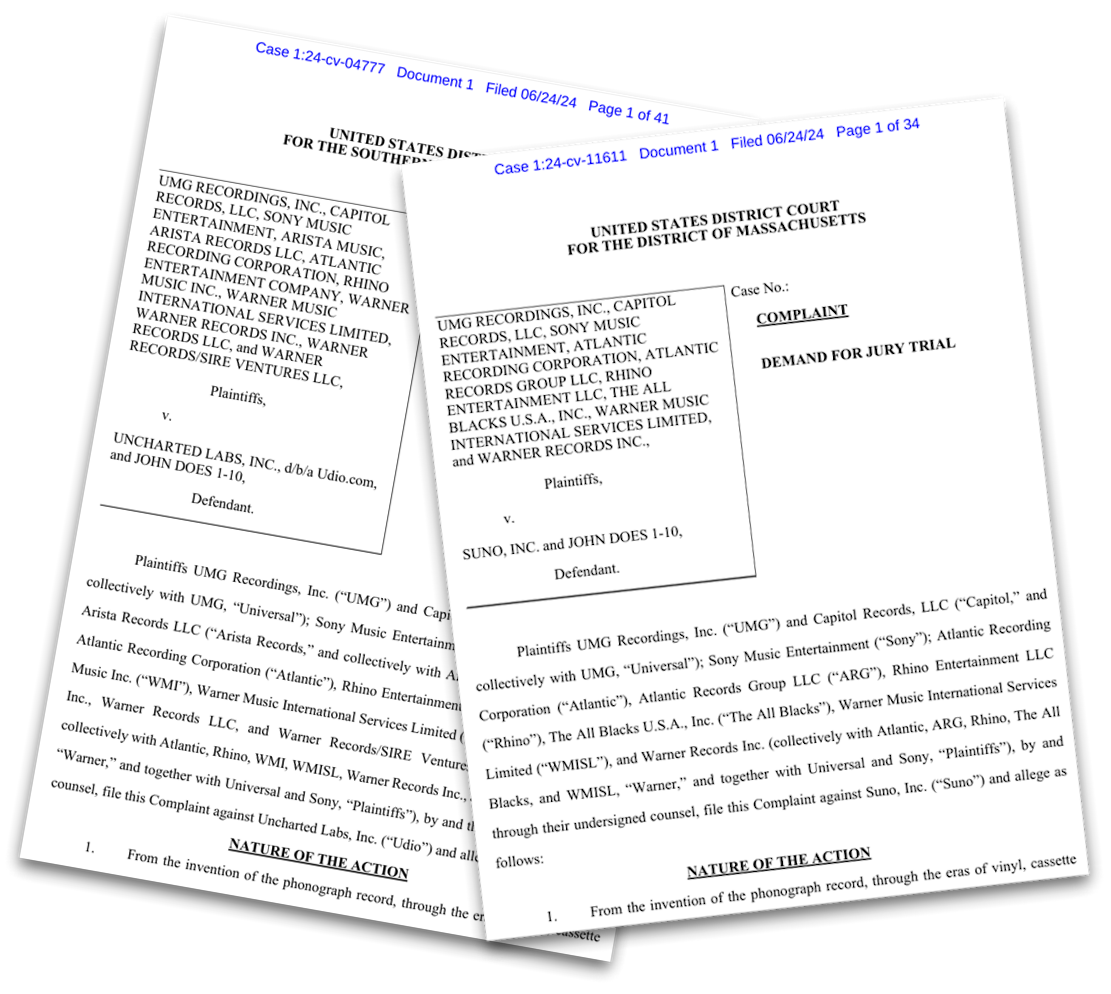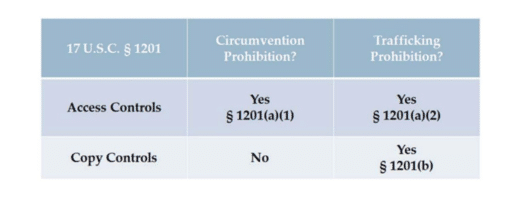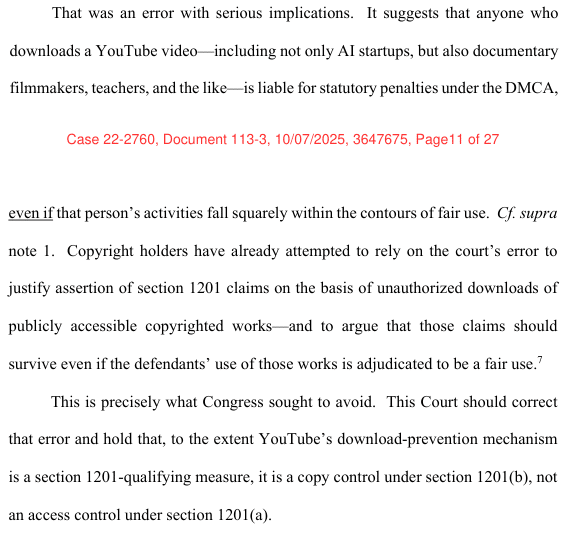 In October 2020, the RIAA filed a DMCA takedown notice at GitHub targeting ubiquitous YouTube ripping tool, youtube-dl.
In October 2020, the RIAA filed a DMCA takedown notice at GitHub targeting ubiquitous YouTube ripping tool, youtube-dl.
“The clear purpose of this source code is to (i) circumvent the technological protection measures used by authorized streaming services such as YouTube, and (ii) reproduce and distribute music videos and sound recordings owned by our member companies without authorization for such use,” the notice declared.
Significant uproar ensued and the youtube-dl repo was subsequently reinstated. For Johnathan Nader, the operator of YouTube-ripping platform Yout.com, the event triggered a five-year legal battle with the RIAA that continues to this day.
Declaration of Non-Infringement
The dispute began in 2019 when the RIAA sent DMCA anti-circumvention notices to Google, claiming that Yout “circumvents YouTube’s rolling cipher, a technical protection measure, that protects our members’ works on YouTube from unauthorized copying/downloading.”
The allegations caused Google to delist Yout.com URLs from search, but Nader strongly believed that he’d done nothing wrong under the law. He decided to sue the RIAA with the primary goal of convincing the court to declare Yout.com non-infringing.
In late 2022, Judge Stefan Underhill concluded that Yout had failed to show that it doesn’t circumvent YouTube’s technological measures.
I agree with the RIAA that Yout’s circumvention entails bypassing YouTube’s technological measures and modifying YouTube’s ‘signature value’ to facilitate unauthorized access to a downloadable digital copy.
Because that bypass and modification constitute a ‘process,’ I conclude that Yout does not plausibly allege that it does not circumvent the YouTube TPM, within the meaning of section 1201(a).
The RIAA thanked the court. Nader filed an appeal to bring the issues before the Court of Appeals for the Second Circuit.
Concerns Mount Over District Court’s Decision
Heading towards a hearing at the Court of Appeals, an amicus brief from GitHub warned that the lower court’s order was too broad, exposed software developers to criminal liability, and as a consequence would chill innovation. The EFF highlighted the benefits of similar software, describing the expansion of Section 1201 liability as “unwarranted”.
Both called for the lower court’s decision to be reversed. The Copyright Alliance warned that a reversal would devastate “numerous business models.”
A hearing at the Court of Appeals early 2024 further highlighted the entrenched positions of the parties, while a series of important questions for YouTube served to address the elephant in the room. Or rather its complete absence. One of the judges commented that certain key issues “could be easily solved” with some informed input.
“But right now, YouTube’s staying out of [the case] and we’re kind of guessing,” he said.
Major Labels Sue AI Startups Suno and Udio
During the summer of 2024, members of the RIAA including UMG Recordings, Capitol Records, Sony Music Entertainment, Atlantic Records and Warner Records, sued AI music generators Suno and Udio in separate but almost identical lawsuits that accused both of “trampling on copyright.”
According to the complaints, the defendants “copied decades worth of the world’s most popular sound recordings” and then ingested those copies into AI models to generate outputs that “imitate the qualities of genuine human sound recordings” for the purpose of generating profit.

Almost 16 months later, there’s no dispute that both companies trained their AI on huge quantities of music. That the companies acquired that music without first obtaining permission is clearly unacceptable to the RIAA. However, since Suno and Udio are relying on a fair use defense, permission isn’t technically required. Recent rulings in other AI cases have affirmed fair use albeit under tight, case-specific details.
In Bartz v. Anthropic PBC and Kadrey v. Meta Platforms, Inc., the defendants argued that use of the plaintiffs’ copyrighted works to train generative AI models (Claude and LLaMa respectively), constituted fair use. The court affirmed fair use in Anthropic’s case, describing the use as “exceedingly transformative.”
In Kadrey v. Meta, the court said that while a transformative use carries weight, the extent to which Meta’s use impacted the market for the original works was more important. No evidence of harm was presented, so Meta’s fair use was affirmed but to an extent, albeit only by default.
Suno and Udio will need every possible break, because the RIAA isn’t conceding an inch. A recent move in both cases goes further still with an attempt to critically undermine their fair use defense.
Millions of Tracks Obtained From YouTube
Recent filings in connection with the labels’ first amended complaints in the Suno and Udio lawsuits claim to identify the main source of music and the method used by the companies to obtain it for training purposes. This establishes a direct link to the substance of the Yout vs. RIAA appeal.
“[M]any (if not all) of the copyrighted sound recordings in [Suno’s] training data [were acquired] by illicitly downloading them from YouTube using a notorious method of music piracy known as ‘stream ripping,’” the labels claim.
In line with the arguments used to convince the district court in the Yout matter, they state that stream-ripping is illegal due to circumvention of YouTube’s technological measures.
Suno’s unauthorized extraction, copying, and storage of Plaintiffs’ Copyrighted Recordings from YouTube for use in its training data was accomplished by Suno’s unlawful circumvention of YouTube’s rolling cipher and any other technological measures YouTube may have implemented to prevent the downloading and copying of licensed content.
Suno’s actions constitute a breach of the Copyright Act’s anti-circumvention provisions, which state, among other things, that “[n]o person shall circumvent a technological measure that effectively controls access to a work protected under this title.” 17 U.S.C. § 1201(a)(1)(A)
Their sudden interest in the Yout v. RIAA matter indicates the AI startups are leaving nothing to chance. There are no parallel claims of fair use in the Yout dispute, and for good reason. However, when viewed from a fair use perspective, a whole new landscape emerges in a five-year-old case in which seemingly every detail has already been debated to exhaustion.
Suno and Udio File Amicus Brief in Yout vs. RIAA
Suno and Udio filed their brief earlier this week. Their statement of interest in the case reads as follows:
“Both Amici assert that their use of pre-existing recordings to develop statistical insights about music, in the service of generating altogether new music, is a fair use under section 107 of the Copyright Act. The order on appeal is not about fair use. But Amici have an interest in this appeal because the ruling below jeopardizes the fair use doctrine by misconstruing the anti-circumvention provisions of section 1201 of the Digital Millennium Copyright Act (‘DMCA’).”
The brief states that Section 1201 governs the circumvention of technological measures, noting that Congress did not provide for a fair use defense under Section 1201. The brief contends that Congress took a different approach to accommodate fair use, and while not determinative in Yout’s case, is nevertheless critical for fair use.
Access Controls vs Copy Controls
According to the brief, Congress harmonized Section 1201 with fair use by establishing a clear distinction between two types of technological protection measures, summarized as follows:
1. Access Controls (§ 1201(a)): These measures control access to a copyrighted work. The startups state that the DMCA prohibits circumvention of access controls.
Conclusion: If a technological measure is an access control, the act of circumvention is presumptively unlawful.
2. Copy Controls (§ 1201(b)): These measures protect a copyright owner’s rights, such as preventing unauthorized copies. Congress did not prohibit the act of circumvention of copy controls. This asymmetry was intentional and designed to protect fair use. Prohibiting circumvention of copy controls would essentially allow copyright owners to block lawful fair uses of already accessible works.
Conclusion: If the technological measure is a copy control, the act of circumvention is perfectly lawful.
Herein lies the problem. ‘Copy Controls’ exist to prevent unauthorized copying, yet copying is permitted under fair use. If circumvention had been totally prohibited, copyright owners would’ve been gifted the de facto right to prohibit fair use.
That didn’t happen, as the brief explains.

“So while Congress enacted a prohibition on the provision of devices designed to circumvent copy controls, it declined to prohibit the act of circumventing those controls, so that it would not effectively impose liability on fair users.”
The Measure Under Review in Yout vs. RIAA is a Copy Control
According to the RIAA’s DMCA takedown notices against Yout, the purpose of the measure under review in the Yout matter is to “protect . . .works on YouTube from unauthorized copying/downloading.”
“That makes it a copy control, i.e., a “technological measure that prevents copying..[]..It is not an access control,” the brief states.
Suno and Udio note that the lower court’s ruling failed to recognize the importance of the Access Control/Copy Control distinction, or that the distinction exists to protect fair uses. In fact, the court declined to consider the Copy Control provision and went on to erroneously conclude that YouTube’s download prevention mechanism is an Access Control.

Implications Beyond Yout
The distinction between access controls and copy controls is unlikely to affect Yout’s mission to obtain a declaration of non-infringement. Yout was primarily accused of trafficking in a circumvention device/service and the DMCA’s anti-trafficking provisions apply equally to technology designed to circumvent access controls (s1201(a)(2)) and copy controls (s1201(b)(1)).
If the lower court’s decision is allowed to stand, Suno and Udio could be in trouble. Last Friday, lawyers for Suno described the RIAA’s addition of illegal stream-ripping allegations to their lawsuit as “a gambit to try to evade application of the fair use doctrine to Suno’s technology development process.”
In short, a denial of the companies’ chosen defense won’t just be a loss for Yout; it could also provide the RIAA with a powerful blueprint for dismantling the fair use arguments that are at the center of AI fair use lawsuits.
The Suno and Udio amicus brief, which was accepted by the court on Friday, is available here (pdf)
From: TF, for the latest news on copyright battles, piracy and more.
Powered by WPeMatico
